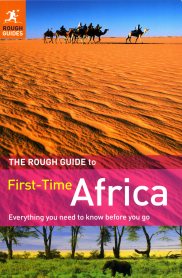Languages define African cultures in a way you might not expect. A person’s first language, their “mother tongue”, is usually the main key to their identity. Language and “tribe” (a word which doesn’t carry the pejorative associations that you might assume) are usually synonymous. Tribal identity is for most people a kind of secondary national identity – not indicated on their ID card, but still recognisable from their language and their name. Many people grow up speaking two or three languages – their parents’ (which are often different languages, inter-tribal marriage being common) and the locallingua franca, which could be English, French, Swahili or a big regional language like Hausa or Arabic.
In a world where you might see the norm as nation states of millions of people, mostly speaking the same language, it is difficult at first to come to terms with a continent of 600 million people where the 53 states and territories are superimposed on hundreds of separate tribes, kingdoms, city-states and language communities. . .
(continued on p.32)
If you can spend a few minutes learning some greetings in the language of the area you’re travelling through, you’ll make instant friends and be a huge hit with everyone you meet. It’s fun. And it’s just polite to try.
[Vai script, Liberia, one of handful of indigenous African scripts]
And here’s a good tip for comprehension and name recall that I don’t think we mention in the book: many African languages use prefixes to ascribe meaning or to change meaning. A good example would be the huge number of villages in western Cameroon that all start “Ba” (Bafut, Bamenda, Bafang, Batcham, Bafia, Bangang, Bangangté. . .). European languages tend to use suffixes at the end of the word to alter the meaning, so the idea of changing the front of a word, or having the same first syllable for hundreds of words, can seem startlingly different, almost deliberately confusing. By parking that first syllable to one side, breaking up the name, you’ll find you can recall the rest of it – Fut, Menda, Fang, Tcham. . .
Maybe. It works for us, anyway.
This page last edited 9 June 2011 © Richard Trillo and Emma Gregg

